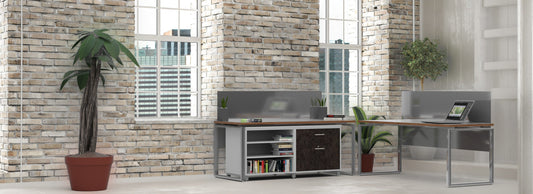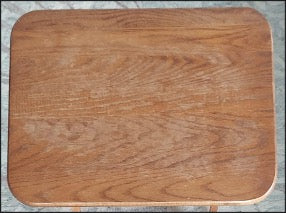
The Timeless Qualities of Linseed Oil as a Wood Finish
Share
When it comes to finishing wood, few products offer the time-tested benefits of linseed oil. Derived from the seeds of the flax plant, linseed oil has been used for centuries to protect and enhance wood. Its natural properties and versatility make it a popular choice for both professionals and DIY enthusiasts. In this post, we'll explore the unique qualities of linseed oil and why it's an excellent option for your wood projects.
1. Natural Beauty and Depth
Linseed oil penetrates deeply into the wood, highlighting its natural grain and color. This penetrating action not only enhances the beauty of the wood but also adds a warm, rich finish that deepens over time. Unlike surface coatings that can create a plastic-like appearance, linseed oil offers a more natural look, making it ideal for showcasing the inherent beauty of the wood.
2. Protection and Durability
One of the key benefits of linseed oil is its ability to protect wood from the inside out. By penetrating the wood fibers, it helps to prevent moisture ingress, which can cause warping, swelling, and cracking. This protective quality makes linseed oil particularly valuable for outdoor furniture and other items exposed to the elements. Additionally, linseed oil hardens as it dries, creating a durable finish that can withstand daily wear and tear.
3. Eco-Friendly and Safe
Linseed oil is a natural product, free from synthetic chemicals and harmful VOCs (volatile organic compounds). This makes it a safe choice for use in homes, particularly in areas where food is prepared or consumed, such as kitchen countertops and cutting boards. Its non-toxic nature also makes it a popular choice for children's furniture and toys. Moreover, linseed oil is biodegradable and sustainable, making it an eco-friendly option for conscientious consumers.
4. Easy Application and Maintenance
Applying linseed oil is straightforward and requires minimal tools. It can be applied with a brush, cloth, or even by hand, making it accessible for woodworkers of all skill levels. The process typically involves applying several coats, allowing each to penetrate and dry before adding the next. This layering helps build a protective barrier while enhancing the wood's natural appearance.
Maintenance with linseed oil is also simple. Over time, as the finish begins to wear, a fresh coat can be easily applied to restore the wood's beauty and protection. This ease of maintenance makes linseed oil a practical choice for both high-traffic areas and cherished pieces.
5. Versatility
Linseed oil is incredibly versatile and can be used on a wide range of wood types and projects. Whether you're finishing hardwood floors, furniture, or wooden utensils, linseed oil provides a durable and attractive finish. It can also be mixed with other natural oils, such as tung oil, to enhance its protective qualities or alter its drying time.
Conclusion
Linseed oil remains a timeless choice for wood finishing due to its natural beauty, protective qualities, eco-friendliness, and ease of use. Whether you're a seasoned woodworker or a beginner, linseed oil offers a reliable and beautiful solution for protecting and enhancing wood. By choosing linseed oil, you're opting for a finish that not only safeguards your projects but also enhances their natural charm, ensuring they remain beautiful for years to come.
Linseed (flax seed) oil is one of our key ingredients in Arlington Woodworks Artisan Furniture Wood Balm



